Stumbling stones memorials laid in Guernsey
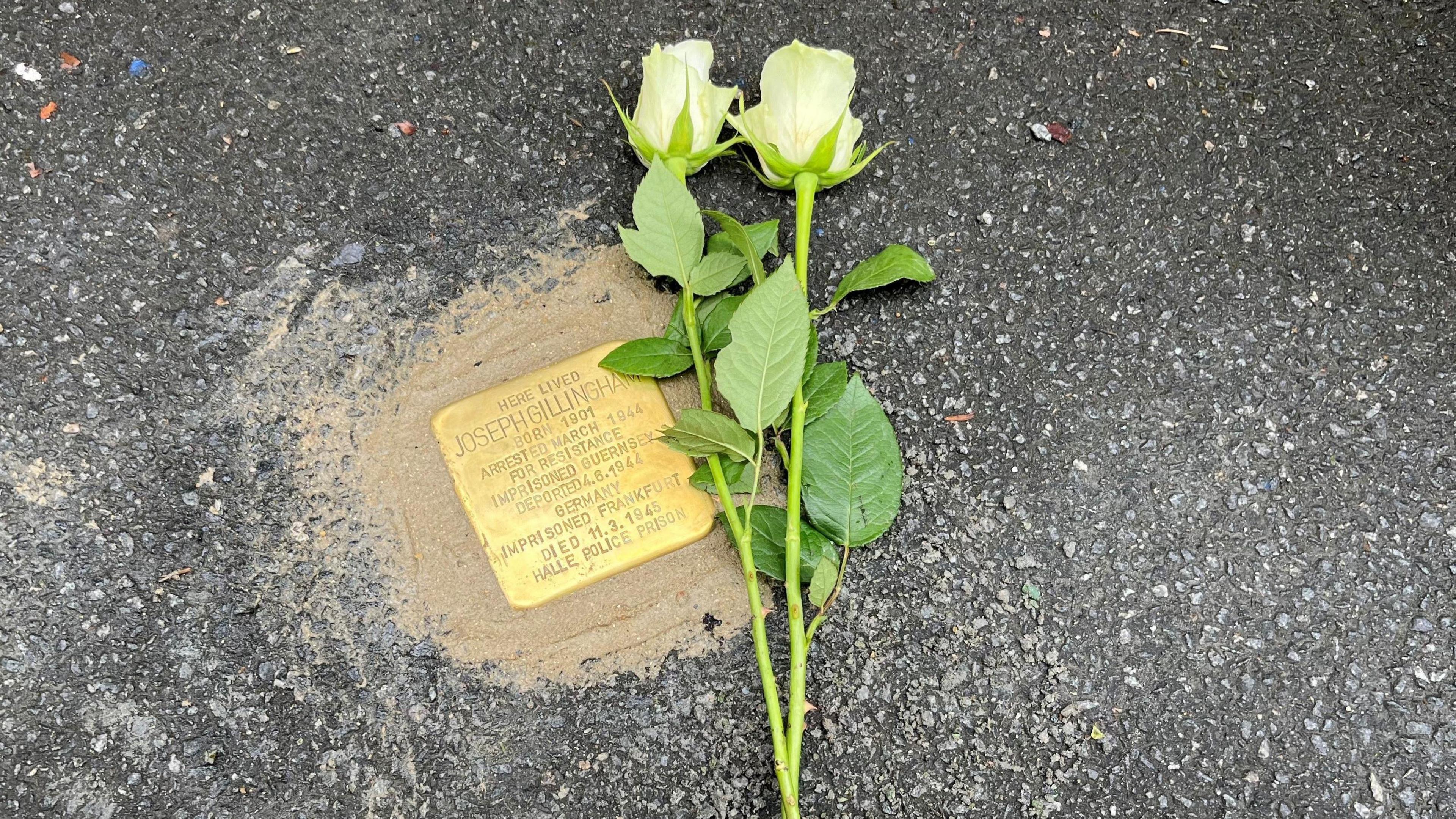
One of the stones laid in Guernsey remembers Joseph Gillingham, of St Peter Port
- Published
Fifteen Stolpersteine or stumbling stones have been laid in Guernsey to commemorate people sent to camps or prisons during World War II.
The installation of the stones in the island, which was occupied by Germany during World War Two, follows similar memorials across Europe in memory of victims of Nazi persecution.
The brass cobblestones remember 11 islanders who died after deportation or arrest, and four who survived.
German artist Gunter Demnig, who initiated the project in 1992, visited and took part in a ceremony at the Castel Hospital.
He said he hoped they made people "stumble with your head and your heart".
Among those named on the stones laid in Guernsey are the three Jewish woman deported from the island, who later died in the Auschwitz concentration camp.
The location of the stones has been chosen based on where people lived or worked - for two of the Jewish woman, who worked as nurses, their stones are being placed near the Castel Hospital.
'An awful risk'
Jean Harris's father, Joseph Gillingham, was honoured with the first plaque of the day in the Bordage in St Peter Port.
Mr Gillingham was a key part in the Guernsey Underground News Service, which illegally listened to and distributed BBC news updates.
He was arrested and deported to Naumberg Prison in 1944, and died from heart failure in Halle Prison in 1945.
Mrs Harris said: "I know they took an awful risk. I'm very proud.
"It'll be another emotional day. I'm honoured that they're doing this for him."
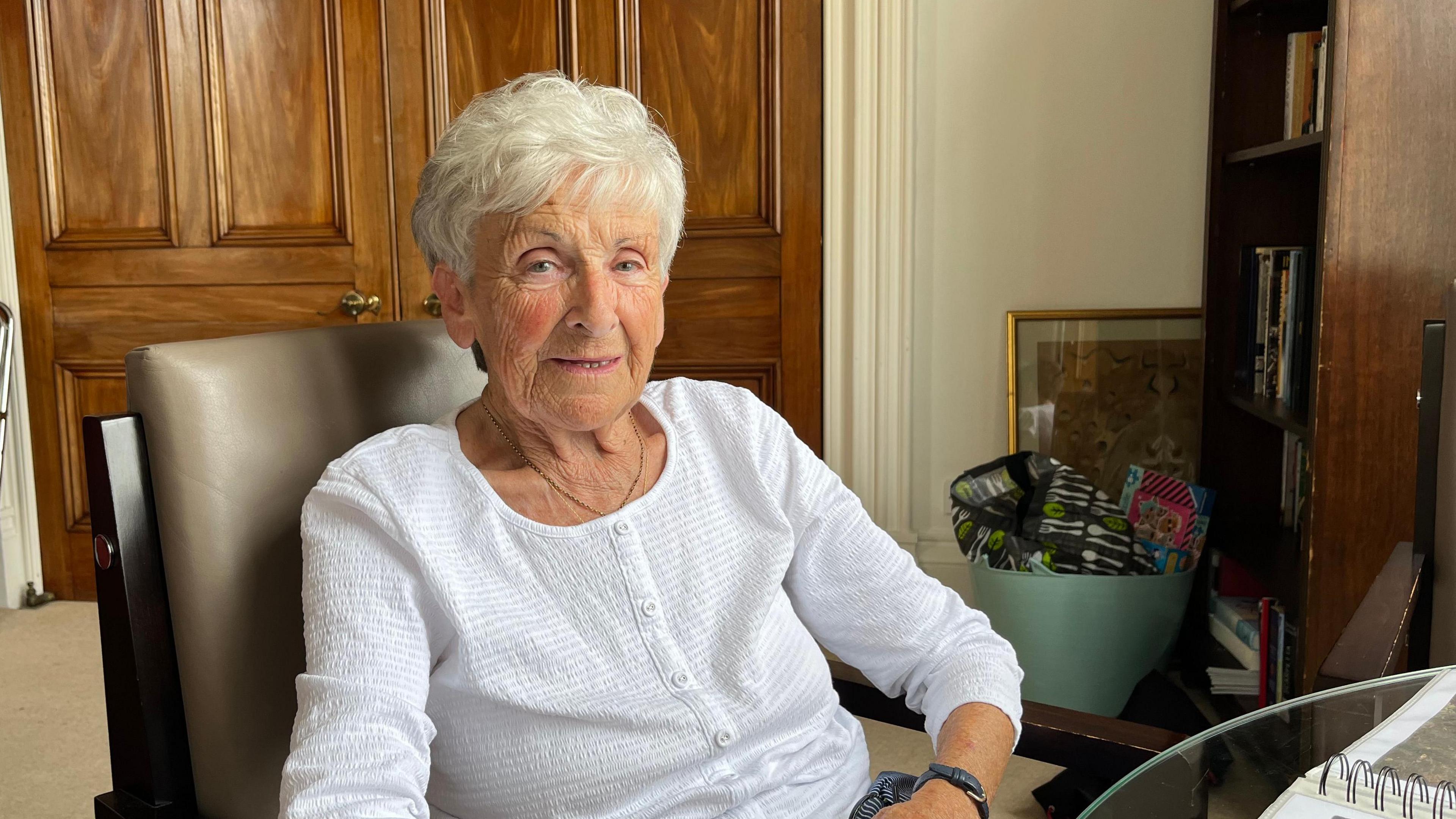
Jean Harris was five months old when her father Joseph Gillingham was arrested
Mrs Harris said: "They took a big risk by listening to the news and writing it down. They would dish them out in leaflets."
She believes some were even hidden in her pram.
Mrs Harris said: "He was sent off to Germany, and after the boat set off, my mother never heard anything from him again.
"Unfortunately there was no news until 2016, when I was approached by BBC Spotlight and invited to go to Germany for a documentary.
"Eventually we found him and went to see his grave, which was very overwhelming to find after 71 years.
"It was strange because it seemed to be that a bond suddenly came once I knew where he was."
"When we left for Germany, I went up to put some flowers on my mother's grave, and said 'I'll find him for you', but I didn't expect to. It was very emotional.
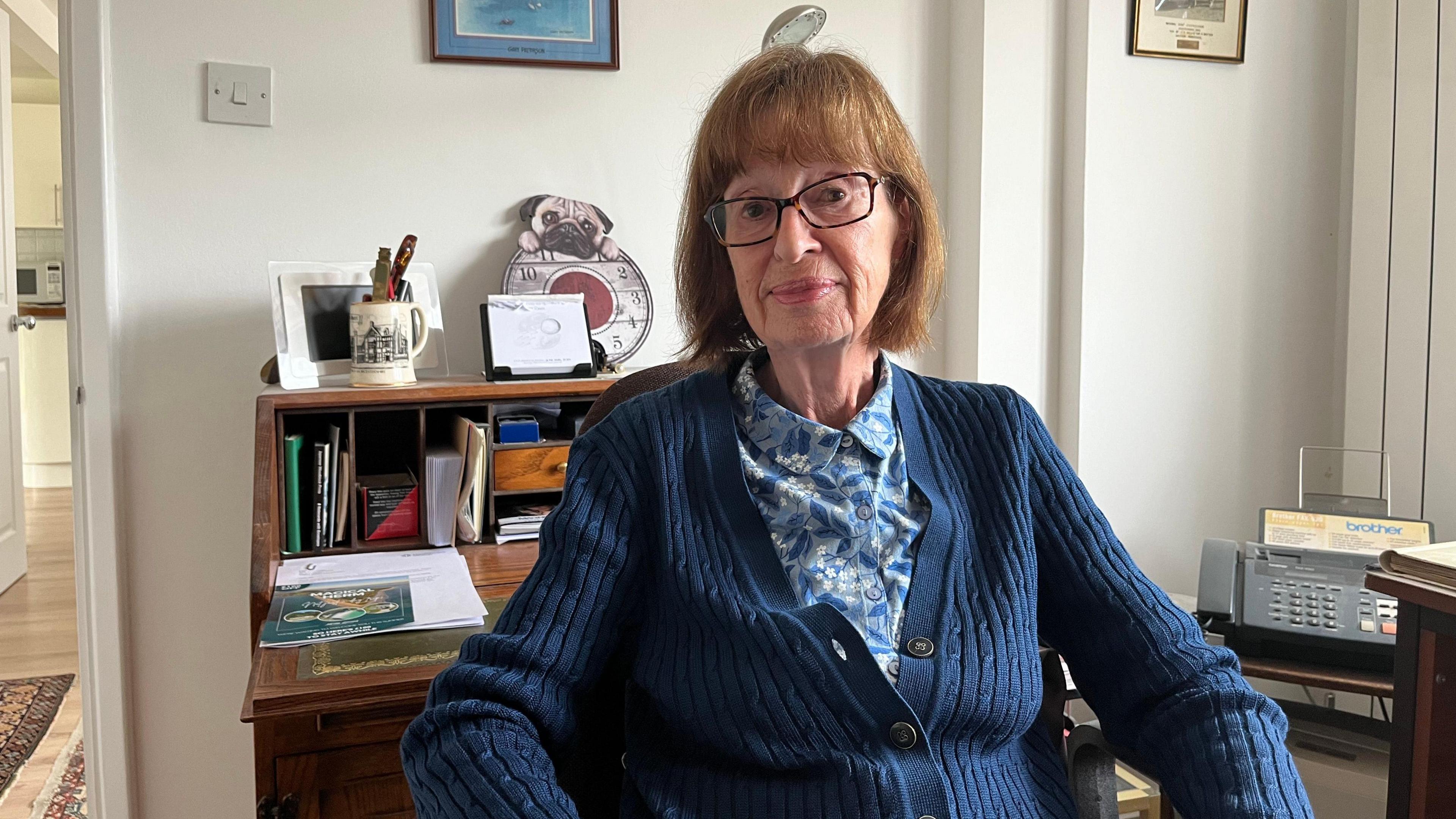
Janet de Santos's mother Elisabet Duquemin is due to be honoured with a plaque at Cobo Village Centre
In 1943, Janet de Santos was 18 months old when she was deported along with her parents, Elisabet and Harry Duquemin, because her mother was Jewish. They were sent to internment camps in Compiègne, then Biberach.
She said her mother never spoke about the experience: "It obviously affected her enormously. She was never the same person that she had been before."
"I think she'd be grateful that people who weren't locals, but were affected, are being remembered too."
Elisabet Duquemin survived the war and later returned to Guernsey. She will be recognised with a Stolperstein outside the Cobo Village Centre in the Castel.
'A different person'
Ms de Santos said: "My mother would have been very nervous, because you don't really know if somebody is going to tap you on the arm in the middle of the night and take you away, because that was the kind of thing that was going on during that period."
She said: "My mother was a different person... she had been a very lively person who played the piano very well and liked singing, and when she came back she wasn't."
Who is being honoured?
Sidney Ashcroft - 2, Pont Vaillant, Rue de Pont Vaillant, St Peter Port
Kingston Bailey - The Old Barn, Les Croutes, St Peter Port
Elisabet Duquemin - Cobo Village Centre, Route de Carteret, Castel
Frank Falla - Dolce Huis, Brock Road, St Peter Port
Marianne Grunfeld - Duveaux Farm, Duveaux Road, St Sampson
Joseph Gillingham - 42, Bordage, St Peter Port
John Ingrouille - Springtides, La Miellette Lane, Vale
Charles Machon - 74, Victoria Road, St Peter Port
Percy Miller - La Turquie, Grande Rue, Vale
Marie Ozanne - Imladris, Dehus Lane, Vale
Herbert Smith - 13, Rue Flère, Vale
Auguste Spitz and Therese Steiner - Castel Hospital, La Neuve Rue, Castel
Louis Symes - 11, Clarkes Houses, Grande Bouet, St Peter Port
Frank Tuck - Les Huriaux, Rue Des Huriaux, St Martin
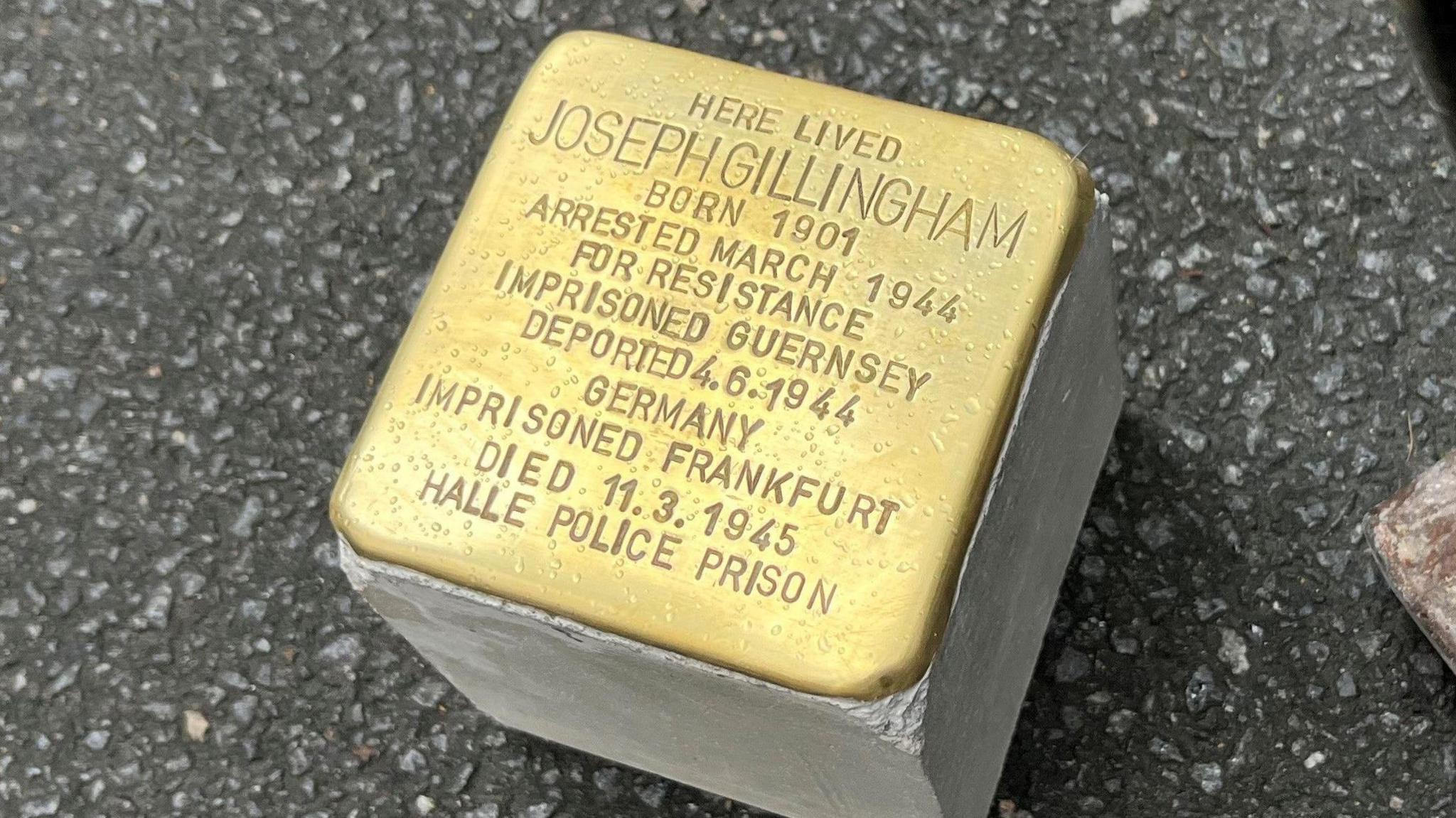
Joseph Gillingham was arrested for his role in the Guernsey Underground News Service
The 10cm by 10cm (4in by 4in) cobblestone-like cubes are being inserted into the ground flush with the pavement with the aim of being eye-catching but not a stumbling hazard, despite their name.
The project has been led by Dr Gilly Carr from the University of Cambridge, with the help of Helen Glencross, from Guernsey Museums, and Chris Addy, from Jersey Heritage.
On Thursday, 20 stones were laid in Jersey, marking the second time a Stolperstein has been put down in the British Isles.
The first was laid down in London in 2022 in memory of Ada von Dantzig.
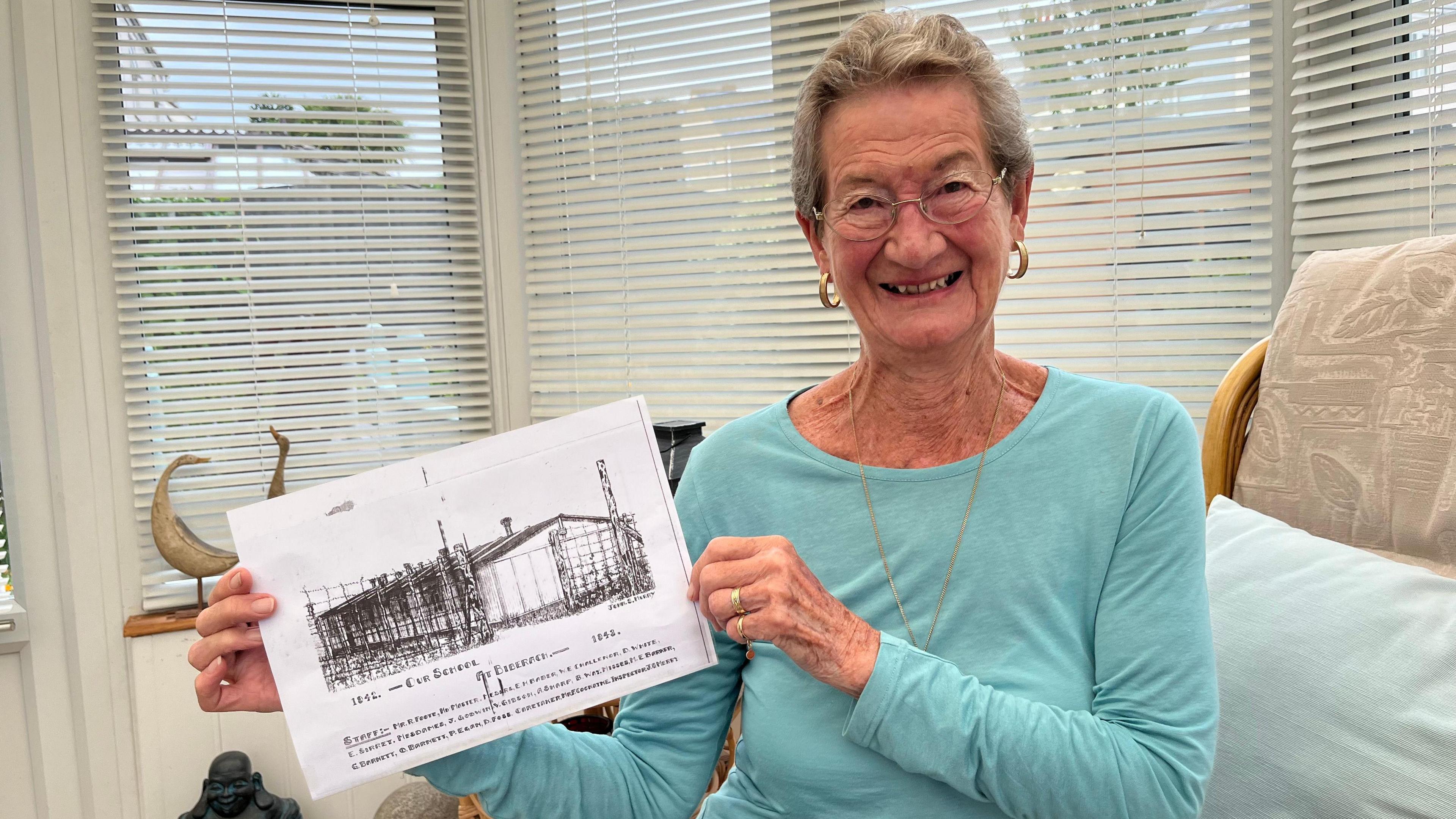
Jill Chubb was deported to Biberach at three years old
Jill Chubb, chair of the Guernsey Deportees Association, was a small child when she and her family were deported to Biberach.
She was involved in the steering group that brought Stolpersteine to the island.
Mrs Chubb said: "I think it's a brilliant idea that means people won't forget what happened in the war. It's definitely one of the ways that people will remember, and hopefully they will remember, and it will be thought-provoking for them."
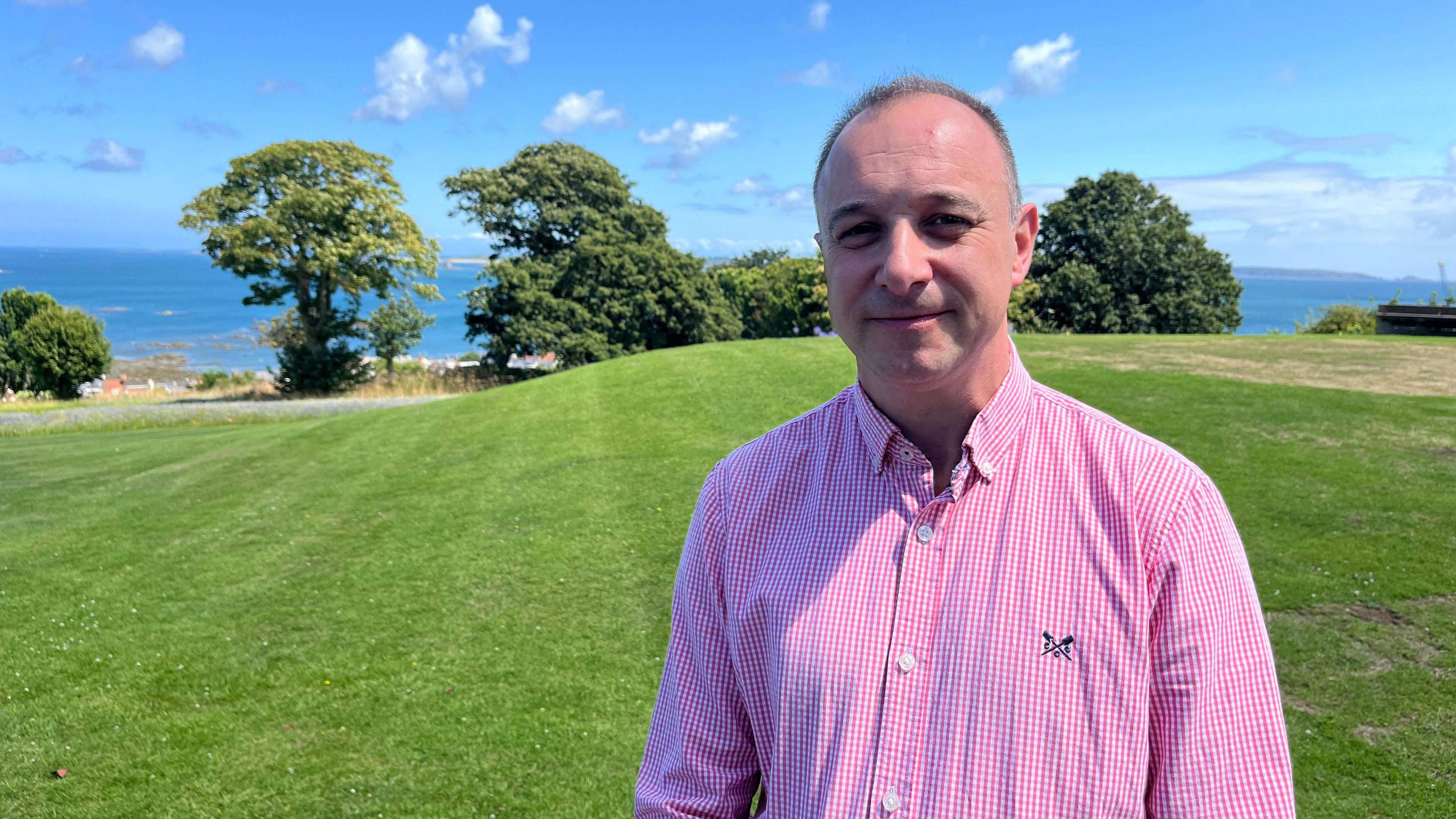
Guernsey's Jewish community were represented at the ceremony
Darren Vogel, a vice president of the Commonwealth Jewish Council, will be representing Guernsey's Jewish community at the ceremony at the Castel Hospital.
He said: "It's a fairly prominent, shiny, happy memorial - a glorious memorial - to the happy times before people left the places they chose to be.
"I think people walking past them, even children walking to school every day, will have a more vivid prompt to think about what really happened here."
Related topics
- Published6 July 2024
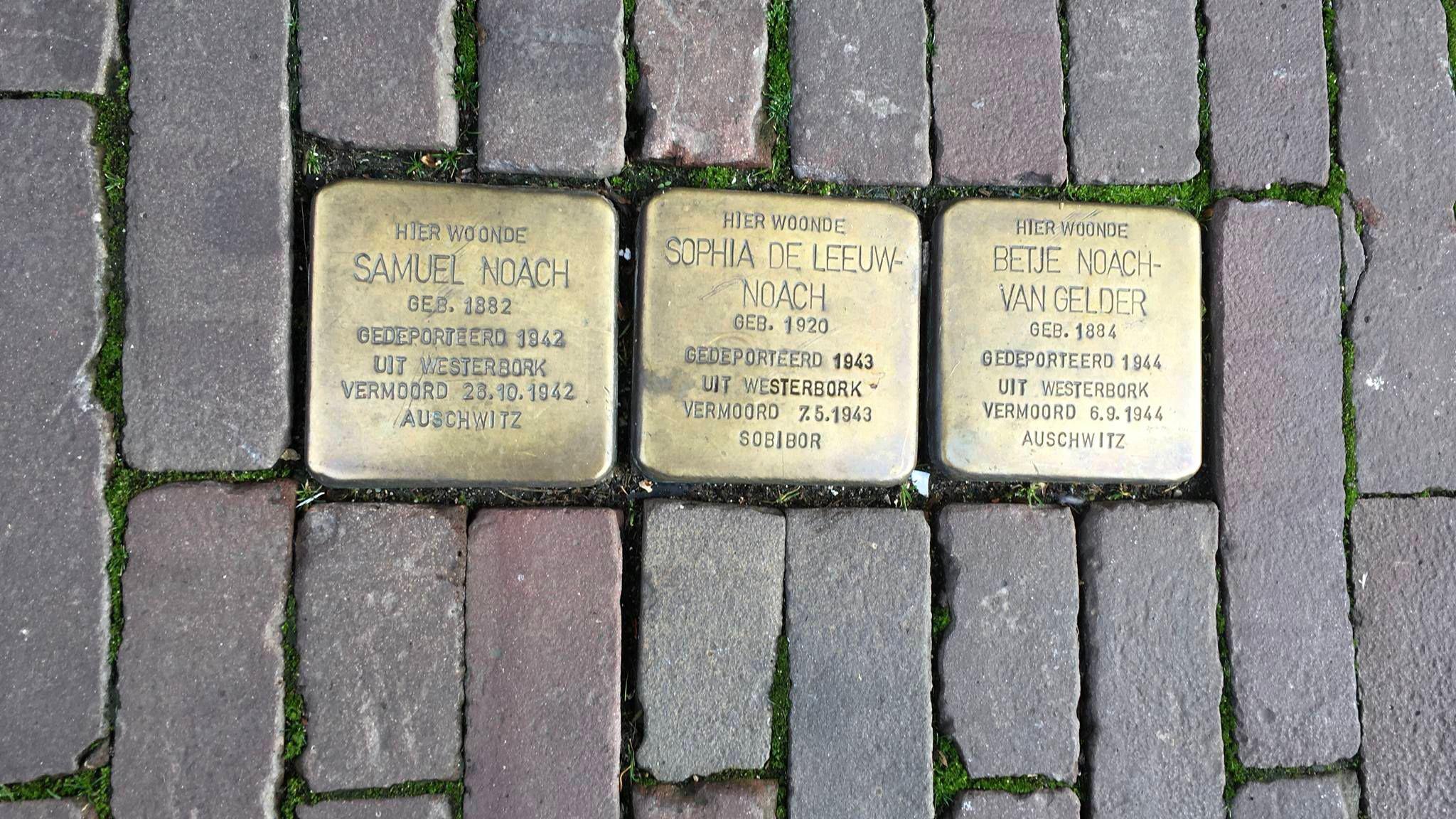
- Published2 January 2017
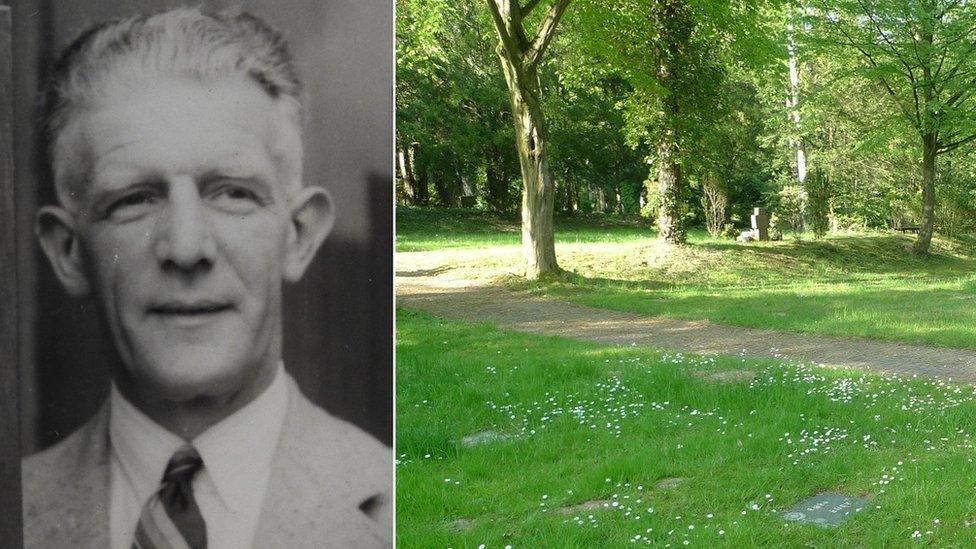
- Published6 May 2016
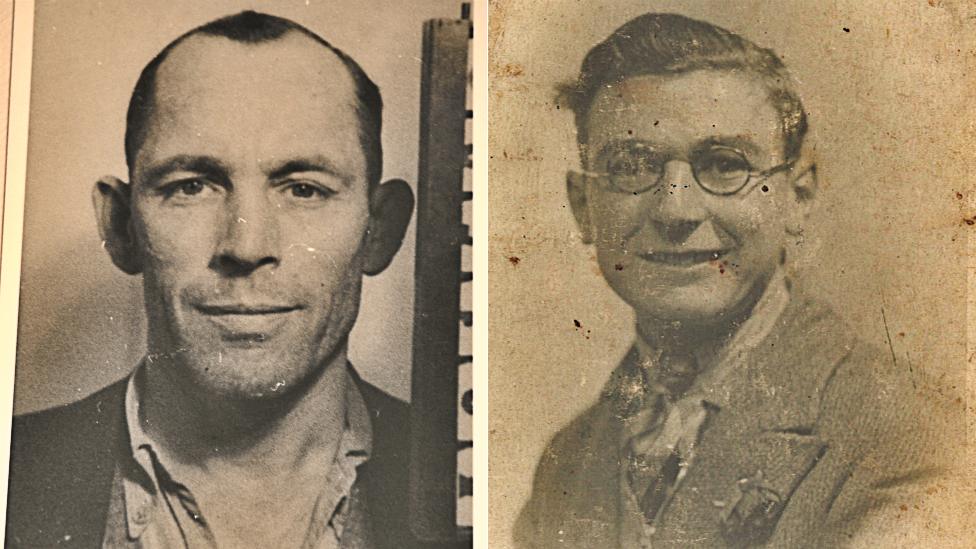
- Published4 May 2015